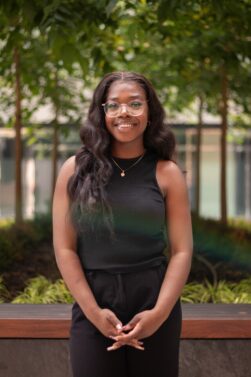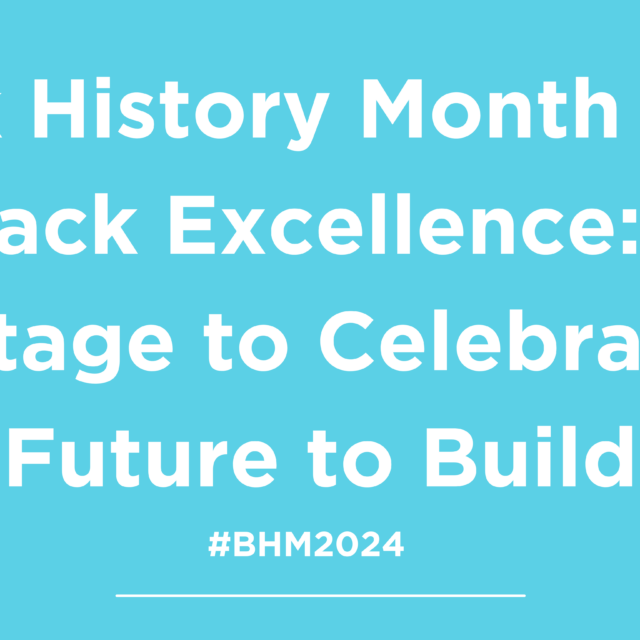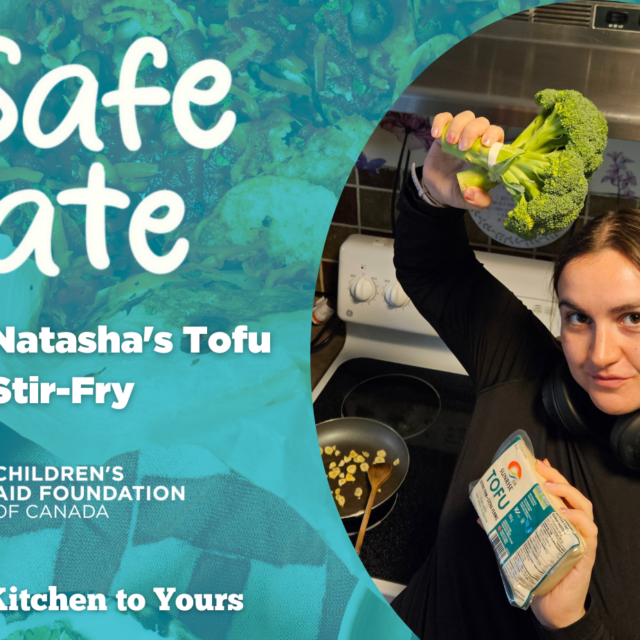Care Creeps Up on You.
Such is Keziah’s poise that it’s hard to picture her ever being unruffled or out of sorts. But, as someone who spent a portion of her life in foster homes, Keziah knows how the system stays with you, long after you’ve left it.
“It’s funny because you think you’re doing okay and then suddenly, three or four years later, it all hits you. I think, for the rest of my life, I’ll be trying to understand how being in care affected my psyche and continues to impact me today. It dysregulates you and changes who you are as a person.”
Keziah’s Experience
Keziah’s experiences echo that of many other Black children and youth involved in the child welfare system. Compounding the traumatic experience of being removed from home, Black children often deal with the loss of identity, culture, and heritage upon entering the system.
According to Keziah, “It’s difficult to fully separate the colonialism that’s historically been a part of the child welfare system and how it continues to work today.”
Keziah has strong convictions about the Canadian child welfare system. It’s a topic she is well-versed in, given her past experiences of growing up in care. As the daughter of first-generation immigrants from Ghana, her opinions on the reverberating effects of colonialism are similarly rooted in first-hand experience.
“My two brothers and I were placed in care in 2011, when I was 11. We lived in Georgetown [Ontario] which, at the time, was a very homogenous town of mostly white families. I think, including my siblings and I, there were a total of seven or eight Black kids at my school. So, when I was placed in a foster home, I was completely removed from my Ghanaian culture and identity. Thankfully, my younger brother was placed in the same home, so we had each other. But it was still very disorienting.”
According to the Ontario Association of Children’s Aid Societies (OACAS), “child welfare agencies have evolved within an historical context of white supremacy, colonialism, and anti-Black racism, all of which have been woven into the fabric of child welfare policies and practices.” Black communities are overrepresented within the child welfare system – Black youth represent 41% of all young people in the care of Toronto’s Children Aid Society, despite the Black population representing only 8% of the city’s population.
“Personally, I often felt like I was just another ‘task’ for someone else while I was in the system. I was a checkmark to cross off on my social worker’s list. And in all my years in care, I never once had a Black social worker or foster parent. So already, there’s a huge disconnect between the system and the people it’s ostensibly serving. A lot of times, it can be challenging for non-Black communities to fully understand that Black culture is not a monolith. There are nuances and differences between African or Caribbean. And if I can’t really connect with my social worker or foster parent, then the system has already failed me.”
Through the challenges, Keziah remained focused on school and immersed herself in extracurricular activities. A model student, she was appointed prefect, joined the student council, and engaged in community work. Upon graduation from high school, she earned a Ted Rogers scholarship through Children’s Aid Foundation of Canada to attend the University of Ottawa, where she is studying political science. In addition to her academics, Keziah also works as a consultant in social finance, helping support organizations and nonprofits with capacity building, feasibility measurements, writing grant proposals and impact investing. In 2023, she joined the Young People’s Advisory Council (YPAC) at the Foundation.
“Throwing myself into school and community work was an outlet for me to better understand my experiences. The Foundation’s support helped bring my academic ambitions to fruition and enabled me to work toward pursuing my dream of going to graduate school. But Black kids in foster care are still in need of more culture specific mentorship and supports for self-efficacy. As a member of the Foundation’s YPAC, I hope to implement the voices of Black youth in national discussion about our welfare and advocate for the integration of diverse tools and resources that will better address our needs.”




